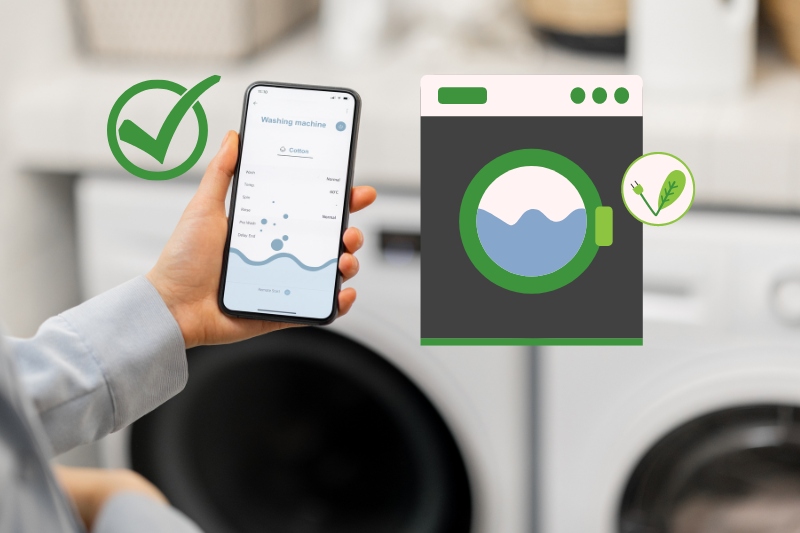Most of us try to save money when and where we can, but when it comes to using a washing machine, we may not be getting our money’s worth.
We’ve done quite a bit of research to help you understand when the cheapest time to run your washing machine is.
Should You Wash Your Clothes at Night to Save Money?
Many people assume that washing your clothes at night is the best way to save money on your energy bills.
However, this is only the case if you have a tariff with multiple rates such as Economy 7, Economy 10 or Warmwise.
Warmwise doesn’t always have cheaper overnight rates as it is designed mainly to reduce the cost of electric heating and water heating, so make sure you check with your energy supplier if this is the tariff you are on.
These tariffs can give you cheaper rates at night. However, some of these are quite rare now in the UK.
If you are on one of these tariffs, running your washing machine could cost you as little as half the standard day time energy rate.
If you aren’t on one of these tariffs, it’s unlikely that running your washing machine overnight will save you any money.
Electric Vehicle Tariffs
For a while, electric vehicle (EV) owners could save quite a lot of money by switching to an EV tariff, which offered much lower energy prices at night.
However, most of these tariffs have now been pulled due to the energy crisis. If you’re an EV owner though, it’s worth looking out to see if they come back in the future.
The lower energy prices on these tariffs apply to all the electricity you use, including using appliances like washing machines.
To qualify for one of these tariffs you need to own an electric vehicle and have a charge point on your property.
Most people wouldn’t find these tariffs very convenient for saving money on laundry, as the off-peak hours are typically between 12 am and 5 am, when most of us are in bed!
What If You Aren’t on One of These Tariffs?
A Treasury-commissioned report in 2016 stated that if families changed their habits and started using appliances at night fewer power stations would be needed, which could result in a £75 a year saving on each household’s energy costs.
If you’re not on one of these tariffs, you won’t save any money immediately, but it will help reduce the strain on the UK’s power infrastructure and contribute a tiny bit to making electricity cheaper for everyone.
The demand for power in the UK typically increases when people get home from work, but this demand for power does not seem to have had an effect on the cost of electricity for the better or for the worse at the moment.
In the future, energy companies might change tariffs to encourage people to use less electricity at peak times.

What About Smart Meters?
You have probably heard murmurings here and there about smart meters and how they have the potential to save us all a bit of energy.
The UK government has previously stated that households with smart meters could save money by using less energy at peak times (when people get home from work, for example) and more at off-peak times as some smart meter tariffs do have different peak and off-peak rates.
Exactly what the offering is on a smart meter will vary depending on your energy provider and what type of electricity meter you have at home, as some meters and set ups are considerably more complicated to update than others.
If you’re not sure whether you’d benefit from a smart meter, your best bet is to shop around and compare the offers available to you.
If you’re using other tariffs, you may have to wait until your energy provider catches up, or simply use the economy settings on your appliances to save money.
You could also consider replacing your washing machine with a more economical model to save money that way.
Conclusion
Unless you’re on a special tariff such as Economy 7 or Economy 10, your washing machine will cost the same amount to run no matter what time of day or night you use it.
However, running it at off-peak times will help reduce the strain on the UK’s power infrastructure and contribute a tiny bit to making electricity cheaper for everyone.

In The Wash is your guide to the best laundry and cleaning products, tips and tricks. Our mission is to solve the UK’s cleaning and laundry dilemmas!






